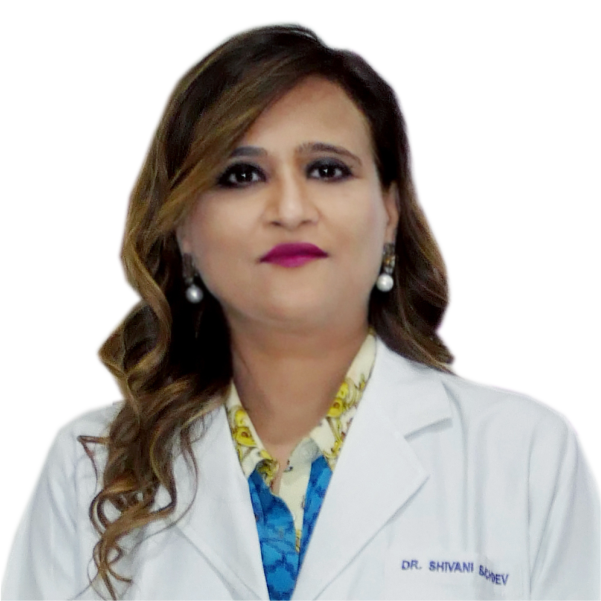Ovarian cyst treatment
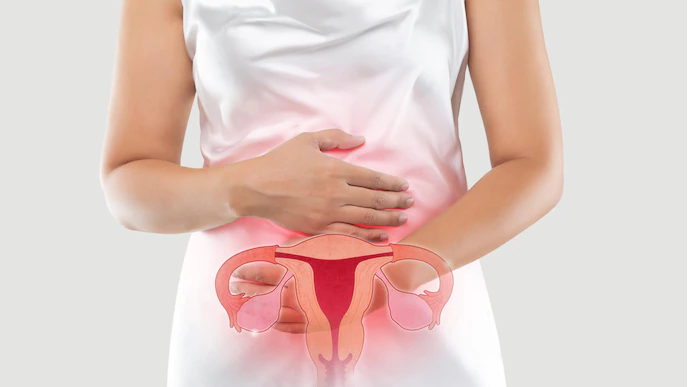
The ovaries are an essential part of the female reproductive system. These are present inside the lower abdomen on either side of the uterus. The two ovaries are about the shape and size of an almond.
Eggs (ova) that mature and develop in the ovaries are released every monthly cycle during their childbearing years. Both ovaries of women produce eggs and female hormones – estrogen and progesterone.
However, sometimes fluid-filled sac(s) called cysts are developed in an ovary or on the surface. Many women are observed to have ovarian cysts at some time in their life. These ovarian cysts typically begin as little and cause no harm or discomfort. Most of these cysts also disappear without any treatment in a few months.
But if the ovarian cysts rupture, they can cause serious symptoms. For protecting your health, you need to get a regular pelvic examination to know about the symptoms signaling a potential health issue.
What are the symptoms of ovarian cysts?
Common symptoms of an ovarian cyst are:
- Pain in the pelvis: It can be persistent pain or a dull ache in the lower back or thighs. The pain starts or ends during menstruation.
- Irregular and painful menstruation: It could be lighter or heavier than before.
- Dyspareunia: Pelvic pain occurs at the time of sexual intercourse.
- Bowel issues: These issues include pain while passing stool or frequent urgency to pass stool or pressure on the bowels.
- Abdominal problems: These include swelling, bloating, or heaviness.
- Urinary problems: Problems while emptying the bladder or urgency to urinate frequently.
Hormonal abnormalities: Production of abnormal hormones, which results in unusual changes like body hair growth or changes in the way your breasts look.
Causes of Ovarian Cysts
The following are the common causes of ovarian cysts:
- Hormonal problems: The functional cysts generally go away, without any medical treatment. However, these are caused due to hormonal issues or due to drugs used for ovulation.
- Endometriosis: If a woman has endometriosis, she is likely to develop a specific ovarian cyst, known as endometrioma. In this type of cyst, the endometriosis tissue is attached to the ovary for growth. These cysts cause pain during menstrual periods or intercourse.
- Pregnancy: The ovarian cyst can also develop during early pregnancy for supporting the pregnancy unless the placenta is formed. Sometimes, this cyst remains in/on the ovary even after pregnancy and it must be removed.
Severe pelvic infections: These infections can easily spread to ovaries or fallopian tubes, causing the formation of cysts.
Various Types of Ovarian Cysts
- Follicular cysts: It is the most common type of ovarian cyst that develops due to follicle growth during the menstrual cycle.
- Corpus luteum cysts: When pregnancy doesn’t occur, this corpusluteum (found inside the ovary) breaks down to disappear. However, it can also be filled with blood or fluid to persist as an ovarian cyst.
- Chocolate cysts or endometrioma: This cyst occurs when the cells lining the uterus from inside, instead begin to grow outside the uterus.
- Polycystic ovarian syndrome: It is usually called polycystic ovarian syndrome (PCOS), which is characterized by the formation of multiple small cysts inside both ovaries.
- Tubo-ovarian abscesses: Infections of the pelvic organs can cause pus-filled cystic areas in ovaries or Fallopian tubes.
- Dermoid cysts: These are cysts with abnormal tissue growth (benign or malignant).
Ovarian Cysts Treatment Options
The doctor may suggest you either shrink or remove the ovarian cyst if it won’t go away on its own or grow larger. Here are the popular treatment options:
Birth control pills
For recurrent ovarian cysts, the specialists may prescribe you oral contraceptives for stopping ovulation and avoiding the formation of new cysts. Birth control pills also help in reducing the risk of ovarian cancer.
Surgery:
- Laparoscopy: If the cyst is small and diagnosed to be cancer-causing, the doctor may perform laparoscopy surgery to remove the cyst. The specialist makes a small incision near the navel and inserts a tiny instrument in your abdomen for removing the cyst.
- Laparotomy: For a large cyst, your doctor will recommend removing it through laparotomy surgery. If the cyst is cancerous, a hysterectomy is performed (via the surgical procedure) to remove the uterus or ovaries for removing the cancerous large cyst.
Best Hospital for Ovarian Cyst Treatment
SCI Hospital is a leading hospital in Delhi for treating ovarian cysts through advanced techniques. We have advanced Ultrasound Devices, MRI, and CT Scan devices for frequent monitoring and determining whether the cysts are functional or not.
People across 55+ countries trust our experienced medical professionals due to the following reasons:
- Expert Care 24/7: Our staff and a team of professional medical specialists, including gynecologists, obstetricians, anaesthesiologists, etc., ensure the best facilities 24/7, 365 days a year.
- Advanced Facilities: We have advanced facilities like well-equipped operation theatres, ICUs, and aftercare facilities to ensure the utmost safety and care.
Best Care for High-risk disorders: We also have high-risk multidisciplinary specialists to ensure all our patients get the best treatment for complicated medical treatments
Best Doctor for Ovarian Cyst in Delhi
Dr.Arvind Kumar is one of the leading Laparoscopic surgeons in Delhi. With over 14 years of experience in the field of surgery, including Advanced Laparoscopic surgery, Dr. Kumar is associated with PSRI (PushpawatiSinghania Research Institute) and Dharmshila Cancer Institute as a GI surgeon and Consultant Advanced Laparoscopic Surgeon. He has operated on many challenging cases laparoscopically and other complicated cancer cases. At SCI Hospital, he works with our supportive medical team to deliver the best treatment to patients.
Frequently Asked Questions Ovarian cyst treatment
Our Doctors
Image Gallery
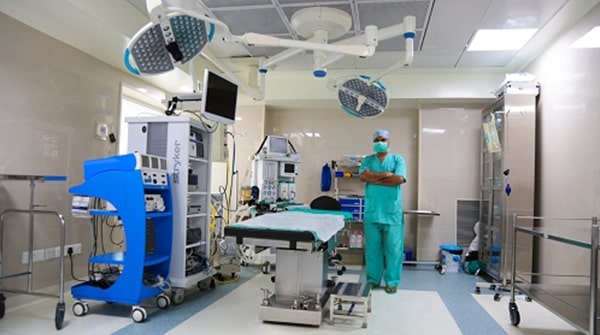
OT
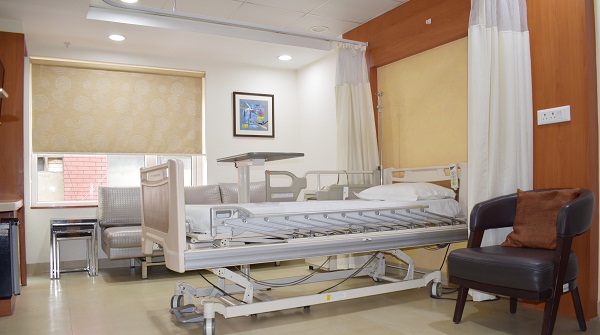
Single Room

Deluxe Room
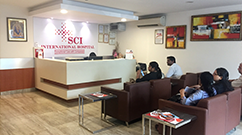
Patient Waiting Area

Patient Waiting Area
Doctor Video
Patient Testimonials - Real People, Real Stories
Consult Now
Our Services
Contact Info
- M 4, Near M Block Market, Greater Kailash-1, New Delhi, 110048
